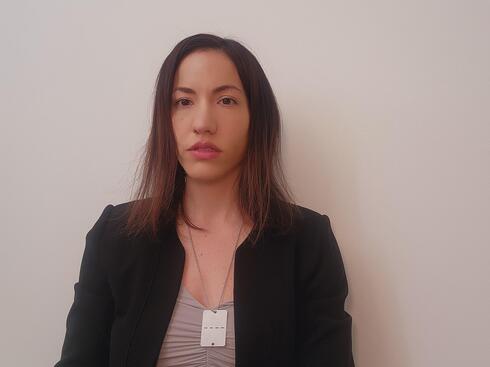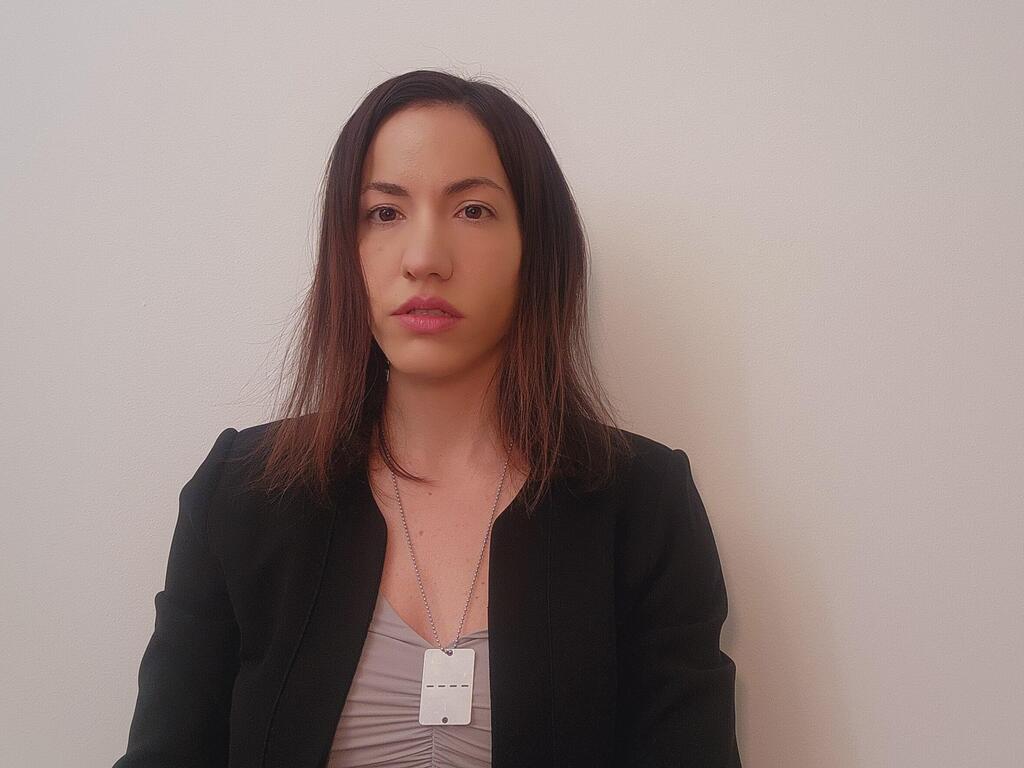
Opinion
Inside the turmoil of Israeli academia in the U.S.
“American academia emphasizes honoring and including every identity. Unless you are Israeli. For over 200 days, being Israeli has been the only identity that does not afford you rights to respect and security within the U.S. academic landscape,” writes Dr. Chen Pundak, a Postdoctoral visitor at NYU Stern
It's always a strange feeling, déjà vu: being in a new situation in the present accompanied by the feeling that I've been here before.
But on Monday afternoon, as I stood in front of the entrance plaza to the business school building at New York University, facing hundreds shouting 'Intifada', 'Resistance by any means is justified', and 'Tel Aviv is stolen land', I knew where the déjà vu came from. American academia emphasizes honoring and including every identity. Unless you are Israeli. For over 200 days, being Israeli has been the only identity that does not afford you rights to respect and security within the U.S. academic landscape.
We officially entered a new phase—taking over university territories and disrupting academic life. Coincidentally, protesters established a camp on Passover Eve at the building where I work, blocking the entrance and starting a continuous protest. The university administration instructed the police to clear the demonstrators, especially after bringing in students from outside New York University. The following morning, the school placed concrete barriers in the plaza to prevent the demonstrators from returning to the same spot. A prestigious school named after a Jewish family resembles a war zone. The protesters, of course, haven't gone anywhere. They simply relocated to another street, continuing their calls for Intifada.
On October 7th, I felt what privilege means. I sat in my apartment in New York, safe from threats of kidnappings, sadism, and rockets. Like any good Israeli abroad, I enlisted to send supplies and raise funds for Israel. The protests here began on October 8th, while battles on Israeli southern land were ongoing, clearing the kibbutzim from terrorists. The Jewish community organized a rally in support of Israel. On the street next to it, a pro-Palestinian demonstration took place. We stood facing each other at a certain point, with only a road and the New York Police separating us. Starting from October 9th, the heads of various universities began to issue statements about October 7th. Within an hour to a few days, some issued revised statements due to the angry responses they received. Some of the statements included the word "context," which would soon become hated among Israelis in the U.S. For us, October 7th was when time seemed to stop. For many in the international and academic community, it was just another painful and cruel milestone in a conflict that has lasted 75 or 100 years, depending on which statement you look at.
In the following days, I worked continuously in front of the computer, and so it was only on October 12th that I began to grasp the seriousness of the situation when I received alerts from friends not to go out the next day because the Palestinians in the city were planning a day of rage. What did that mean? Marches with calls for the liberation of Palestine from the river to the sea, blocking entry to popular Israeli restaurants, vandalizing the display windows of a jewelry store that dared to hang signs of kidnapped children.
The first few weeks on my campus were relatively calm compared to Columbia: it started with the removal of signs of kidnapped children at the entrance to the business school building and the nearby streets. It continued with several incidents of violence captured on camera. In the third week of October, there was a demonstration in Washington Square Park, a landmark of New York University, where calls like "We don't want a Jewish state, we want 48" were heard, and in the background, an Israeli flag was seen in a trash can. The university clarified to those who complained that the person holding the sign was not a student at our institution. The calls, unfortunately, are considered free speech.
I was not confused; my campus is relatively calm. When writing these lines, there were fewer extremist incidents at New York University. The problem is that the university is not a gated campus; it has buildings scattered between the Village and Union Square. The latter is a known area for starting or ending marches in the city that have become routine. Some Israelis in the city organized by changing their names in taxi apps, prepared a cover story in case a stranger asked where they were from, and, of course, they got used to taking a detour if they encountered demonstrations calling for Intifada. I got used to walking with my hostages' solidarity tag and a shirt from Amazon with the Israeli flag on it.
For six months, I alerted the school and university in every possible way about the rampant incitement gaining momentum in the city and the academic space. Sometimes, I was answered with a polite email and one empathetic phone call from the dean's office. A 10-step plan to prevent antisemitism and Islamophobia based on dialogue was published. Some of the plans were canceled, and new ones were decided upon. Perhaps they realized over time that there was no one to talk to. Why did I come to this conclusion? Because I had already seen dozens of demonstrations on the street and hundreds across the U.S. online. The call for two states does not exist in them. They are demonstrating for one state, and it will not include us Israelis. There are still Israelis who insist that the demonstrations are about 1967. I have not once heard a mention of that year. I have not heard mention of the word Samaria or the West Bank. Instead, I have heard calls to bomb the city where my entire family lives, Tel Aviv. When Tel Aviv was bombed on October 7th, and the IDF failed to intercept one of the missiles, it hit my best friend's house.
Beyond undermining the personal security of Israeli students and faculty on campuses, there is a more serious problem here, and it is the academic future of Israel: Boycott movements have already achieved several successes at universities. For example, the University of Michigan passed a Senate resolution not to financially cooperate with any entity related to Israel's defense industries. The resolution states that 'this is not a request to refrain from cooperating with Israeli researchers or universities.' You need to understand American culture to know that the phrase 'this is not a request' means that it is also not forbidden. Some may interpret this as a recommendation.
Even worse is the lack of research on October 7th. An event of this magnitude, with such far-reaching implications, should have sparked a new wave of research in law, social and clinical psychology, cybersecurity, and sociology, similar to what happened after September 11th. The collective trauma we experienced in the digital age where everything is documented is a research question. The countless civic initiatives that quickly emerged, which succeeded, and why, is a research question. How the dense Israeli social network affected information transmission on the day of the massacre and afterward is also a research question. Yet, this discussion is not happening, at least not in my field. This is a missed opportunity in research and a missed opportunity in historical consciousness. Hundreds of studies that would be published with an opening paragraph motivated by the events of October 7th could help in the current war of consciousness we are fighting. I do not presume to say why this has not happened yet. I will only say from my personal experience that over any paper that deals in some way with October 7th, there hangs the fear that it will immediately be judged as political, problematic, and biased, even if it is merely a secondary data analysis, and if it mentions Israel and Palestine more than once.
I have shared all these concerns with the Israeli and Jewish academic community. Like me, hundreds of Israeli postdoctoral researchers across the U.S. have gathered, documented, filed claims, and organized protests against antisemitic incidents and the normalization of anti-Israel sentiments on campuses. We have tried to raise awareness of the issues with DEI (Diversity, Equity, and Inclusion) organizations that do not include the Jewish community as a minority. We have warned about instructors offering course points in exchange for participating in protests. Postdoc is when a young researcher should be 200% focused on opening new research directions and building connections, not existential activism. But more importantly, the reality is that this task is beyond what we can handle. We have no stability. Some of us do not have a position or tenure, have no high academic profile and status, and, most importantly, lack support and preparation. Against the wave that is sweeping over us and going nowhere, we need a structured plan for the next decade, unification of forces, and especially the construction of a well-organized, coordinated narrative that fits the current climate in the U.S., just like what has been done on the other side.
In conclusion, the message is to the government, the Ministry of Foreign Affairs, the Ministry of Education, the Ministry of Diaspora, the Ministry of Culture, the universities in Israel, and the senior faculty members in Israel and around the world:
Wake up and start working.
Soon, before it becomes too late.
Dr. Chen Pundak, a Postdoctoral visitor at NYU Stern, is a graduate of Tel Aviv University. She is researcher in consumer behavior, decision-making under uncertainty, and moral judgment in social networks.














